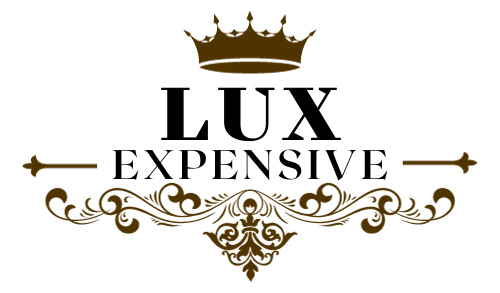Jeans are expensive because of factors like high-quality denim, brand reputation, complex washes and treatments, rare vintage fabrics, skilled craftsmanship, new innovations, ethical manufacturing, convenience of purchase, rising production costs, and what customers are willing to pay.
Jeans are one of the most popular and iconic clothing items around the world. From casual weekends to fashion runways, jeans are a versatile staple in many closets. But have you ever wondered why these denim pants often come with such a hefty price tag? Let’s explore some of the top reasons why jeans can be so expensive.
Top 10 Reasons Why Are Jeans So Expensive
1. High Quality Denim
The denim used in premium jeans is typically made from high-end cotton that is specially crafted for durability and comfort. Many brands use unique weaving and dyeing processes as well as customized fabrics like ring-spun denim.
These production techniques require more precision, labor and technical skills – all of which drive up costs. So part of what you pay for with pricier jeans is better quality denim.
2. Brand Name and Reputation
Established denim brands have spent years and millions building reputations for style, fit and quality. Customers are willing to pay top dollar for brands like Levis and 7 For All Mankind because of the perceived value of the brand name and heritage.
With premium brands, shoppers know they’re getting well-made, fashionable jeans from an iconic label. The brand name recognition alone allows these labels to command higher prices.
3. Unique Washes and Treatments
One way premium denim brands differentiate themselves is by using special garment washing and finishing techniques. From heavy fading and whiskering to stone-washing and laser treatments, these complex washes add to the craftsmanship and unique look of high-end jeans.
Developing and applying these treatments adds to the production costs. So the price tag goes up to cover the labor, materials and techniques used to achieve those distinct vintage washes.
4. Rare and Vintage Denim
Some pricier jeans incorporate rare denims sourced from heritage mills or offer limited edition runs of vintage fabrics. These uncommon materials require extra manufacturing time and expertise.
And the limited supplies allow brands to charge more for unique jeans made from rare denims. Using these exclusive textiles helps luxury brands justify higher costs for their jeans.
5. Skilled Craftsmanship
Many premium denim brands highlight the skilled craftsmanship needed to make their jeans. From tailoring the perfect fit to reinforced stitching and custom touches like leather patch labels, jeans from high-end brands feature precise construction and detailing.
This artisanal craftsmanship comes from experienced denim designers and manufacturers, which gets reflected in the elevated pricing.
6. New and Innovative Fabrics
Fashion-forward denim brands are constantly experimenting with new fabrics and innovations that make their jeans stand out. This includes using tech-enhanced fabrics with special properties like four-way stretch, moisture-wicking capabilities or contouring compression.
Developing and incorporating these textile innovations adds to the bottom line. The research, development and technologies used justify charging higher prices.
7. Ethical Production Practices
Some jeans brands manufacture locally or use ethical production practices to provide fair wages and safe working conditions. This responsible manufacturing has higher labor costs which get passed on to the consumer through higher retail prices.
Many consumers are willing to pay more for jeans produced sustainably and ethically – and brands charge accordingly.
8. Convenience and Immediacy of Purchase
Shoppers who want to buy the latest designer jeans collection right when it’s released will pay a premium. Having jeans immediately available in-store or for fast shipping means brands can’t take advantage of sales and discounts.
Providing the convenience and instant gratification of purchasing jeans the moment they launch allows brands to keep prices high.
9. Rising Production Costs
It’s not just the final jeans themselves that are pricey – the raw materials and production costs brands pay to make denim are rising around the world. From cotton and labor to transportation and energy, making jeans is becoming more expensive in nearly every link of the supply chain. Brands pass these growing costs along by charging more for their jeans.
10. What Shoppers Are Willing to Pay
At the end of the day, jeans cost as much as brands think customers are willing to pay for them. Many premium denim shoppers value craftsmanship, brand status and being fashion-forward over affordability.
For these shoppers, higher prices actually reinforce the perception of quality and desirability. Brands strategically price jeans as high as the market can bear – which seems to be getting ever loftier.
Is jeans a Good Shoe Brand?
Jeans are actually a type of pants, not a shoe brand. Jeans are made from denim and are commonly worn as casual pants, famous brands being Levi’s, Wrangler, Lee, etc.
Are jeans Good?
Yes, jeans are a versatile, comfortable, and fashionable type of pants that have been popular for decades. Made from sturdy denim, they are durable, easy to wear, and go with many tops and styles.
Are jeans Worth The Price?
For many people, paying a higher price for designer and quality jeans is worth it for the perfect fit, premium fabrics and long lasting construction. But reasonably priced jeans can also be good purchases.
Where To Buy jeans?
Jeans are widely available at department stores, specialty jean shops, discount/fast fashion stores like H&M or Zara, and online retailers like Levi’s and Madewell. High-end designer jeans can be found at upscale boutiques and brand flagship stores.

